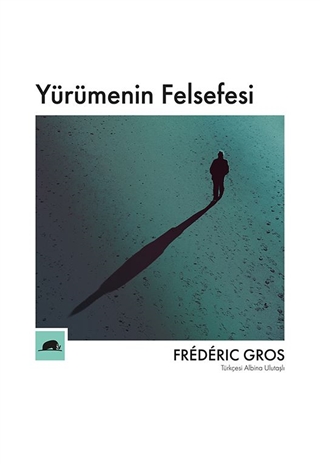What do you think?
Rate this book


192 pages, Paperback
First published May 15, 2009
"اننا لا نمضي، ونحن نمشي، للقاء أنفسنا، كما لو كان الأمر متعلقًا بإسترجاع الذات، والتحرر من أشكال الإغتراب القديمة، لإستعادة الذات الحقيقية والهوية المفقودة. عند المشي يفلت المرء من فكرة الهوية نفسها، من الإغواء بأن يكون أحدهم، من الحصول على اسم وتاريخ آخر."
"المشي هدي ونداء. نمشي ايضًا لكي نقطع مع أمر ونخلص أنفسنا: نضع حدًا نهائيًا لصخب العالم، وتراكم المهام، والاستنزاف. وليس هناك وسيلة أفضل للنسيان، وترك المكان، غير الملل العظيم للطرقات، والرتابة اللامحدودة لمسارات الغابات. وبذلك يكون المشي بمعنى الانفصال، والرحيل والتخلي."
Kıssadan hisse şuydu ki, yürürken, kendine güvenin ve cesaretin sahici göstergesi yavaşlıktır. Fakat burada tam anlamıyla hızın zıddı olmayan bir yavaşlıktan söz ediyorum. Bu öncelikle adımların son derece istikrarlı olmasıdır, yeknesaklıktır.Diyojen, bu da hep bir arrtis:...
“İyi yürüyüşçü süzülerek gider ve adımları yarım daireler çizer. Kötü yürüyüşçüyse bazen hızlı ilerleyebilir, süratlenebilir, sonra yavaşlayabilir. Hareketleri kesik kesiktir, adımları köşeli açılar çizer. Aniden kazandığı hızın ardından soluk soluğa kalır. Coşkuyla hareket etmenin, bedeni itip kakmanın sonucu kan ter içinde kalmış kıpkırmızı bir surattır. Yavaşlık tam olarak aceleciliğin zıddıdır.
37-8
Bir gün bir çeşmede suyu avuçlarıyla içen bir çocuğa rastlayan Diogenes bir an durduktan sonra şaşkınlıkla, “Diogenes”, der, “aldın mı boyunun ölçüsünü?” Bereketsiz heybesindeki ahşap kupayı çıkarıp muzafferane bir gülümsemeyle uzağa fırlatır. Mutludur, çünkü bir yükten daha kurtulmuştur. 121Bugün Kapitalizm için ne yaptın?
Yeni ekonominin ilkesi basittir. Herhangi bir eylemin ne kazandıracağı değil, bu eylemin gerçek hayattan neyi alıp götüreceği sorulmalıdır.
Bir şeyin maliyeti aslında, ister derhal ister uzun vadede olsun, hayatta neye mâl olduğuyla ölçülür.
Aynı zamanda kârı faydadan ayırmaya yarayan bir yoldur bu. Ormanda çıkılan uzun bir yürüyüşten ne kâr elde edilir? Hiç. Satılabilecek hiçbir şey üretilmemiş, topluma hiçbir fayda sunulmamıştır. Bu açıdan bakıldığında, yürüyüş işe yaramaz ve beyhude bir eylemdir. Geleneksel ekonomi dilinde bu, heba edilmiş, servetin üretilmediği kayıp zamandır. Halbuki yaşamım için bana sağladığı fayda -sırf içsel nedenlerle de değil nereden bakılırsa bakılsın muazzamdır. Yürüyüş sırasında insanı serseme çeviren dünyalık dertlerin kuşatmasından kurtulur ve aklım zevzeklerin bıkkınlık verici boşboğazlıklarından azade, kendime kulak verebilirim. Tüm gün kendi kendimin sermayesi olurum.
Ya dinleyerek ya da düşüncelere dalarak geçirdiğim sadece bana ait bir zaman. Doğa bütün cömertliğiyle renklerini öylece bana sunar. Yalnızca bana. Yürümek bütün duyularımı açar ve varoluşu tüm detaylarıyla hissederim. Bunlar bize bir şeyi ifade ediyor. Yürümek insana kâr değil fayda sağlar, hem de fazlasıyla. 83-4